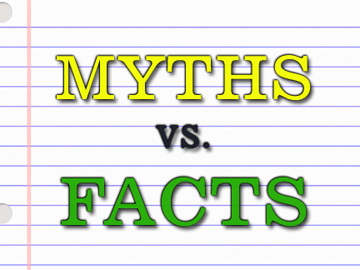Blowing Up the "Heat Energy" Myth: The Case for Ethanol
 |
What if everything you thought you knew about engine fuel efficiency was based on a myth? A persistent illusion, driven not by physics, but by petroleum industry propaganda?
By DahVeed Montané
The Ethanol Fuel Guy
Founder of FillUps LLC
 DahVeed Montané |
That’s the argument being made by ethanol advocates who say it’s time we stop comparing fuels by how much heat they give off—and start looking at how much actual work they do.
I recently sat down with three experts to unpack the issue: David Blume, author of Alcohol Can Be A Gas!; Marc Rauch, co-founder of The Auto Channel and author of The Ethanol Papers; and Dean Harlow, former president of Ricardo plc, where he helped develop the EBDI engine - a platform designed to get diesel-level power out of ethanol.
What Is the BTU Myth?
For decades, we've been told that gasoline and diesel are superior because they contain more BTUs - British Thermal Units - the amount of heat required to raise one pound of water by one degree Fahrenheit. But experts like David Blume say this metric is misleading.
“The BTU rating of a fuel is almost meaningless unless you’re using it to boil water,” Blume said. “In an internal combustion engine, it’s the combustion profile, not the heat profile, that matters.”
In plain terms: BTUs measure heat, but engines run on pressure and expansion, not heat. Gasoline and diesel burn slowly and hot, losing energy as heat. Ethanol, on the other hand, burns faster and cooler - converting more of its energy into motion, not waste heat.
As Blume loves to point out, “Even a campfire has tons of BTUs, but it won’t move your car an inch.”
Cooler Engines, Stronger Results
Ethanol’s cooler burn might sound like a weakness, but it’s actually a huge advantage. Cooler combustion reduces engine wear, minimizes maintenance, and can eliminate the need for liquid cooling altogether. Ethanol-optimized engines can use smaller radiators - or even air cooling - without overheating.
The result? Longer engine life, lower repair costs, and a more sustainable design.
Marc Rauch: Myth Buster on Wheels
Marc Rauch has driven across the U.S., testing ethanol-gasoline blends and collecting data firsthand. His verdict: ethanol often performs better than gasoline in real-world driving.
“The BTU argument is a distraction,” he says. “It sounds scientific, but it’s really a gimmick created by the oil industry. In reality, ethanol often outperforms gasoline in both power and mileage - if the engine is designed for it.”
Most tests, Rauch says, are rigged against ethanol. Pouring ethanol into a gasoline-optimized engine and blaming the fuel is like putting diesel in a gas car and acting surprised it doesn’t run right.
Ethanol also has a higher octane rating than gasoline, meaning it resists knocking and allows for higher compression ratios - key for boosting both power and efficiency.
Heat ≠ Work
Let’s zoom out. In physics, work is what moves things - measured in joules. Engines create work by converting chemical energy into the expansion of gases that push pistons. BTUs, meanwhile, measure heat - not work. That’s why internal combustion engines should be evaluated not by how much heat a fuel produces, but by how efficiently that fuel turns into mechanical motion.
Ethanol excels in this category, particularly in engines built to harness its rapid flame speed and high compression tolerance. An engine isn’t failing because ethanol has lower BTUs. It’s failing because it was built for something else.
Diesel: The Dirty Gold Standard?
Diesel is praised for torque and fuel economy, but it comes with baggage: high temperatures, heavy engines, toxic exhaust, and high costs.
By contrast, ethanol can match diesel's torque and horsepower when optimized correctly, without the pollution and with easier cold starts. Ricardo’s EBDI engine showed that ethanol could match diesel's power - but using cleaner, cheaper, locally made fuel.
From Brazil to the Racetrack
Brazil has run millions of cars on E100 - nearly pure ethanol - for decades. Their flex-fuel vehicles can run on ethanol or gasoline in any proportion. They've proven it works - and works well.
And it's not just commuters. Ethanol has powered everything from sugarcane harvesters in Brazilian fields to IndyCars on the racetrack. For nearly a decade, the IndyCar Series used ethanol exclusively - because of its performance and safety profile.
Even in Europe, fleet trucks have run on ethanol. Scania has operated ethanol-powered logistics fleets, proving that long-haul transport doesn’t require diesel.
Real Metrics: Torque and Horsepower
Forget BTUs. If you want to measure how well a fuel performs, look at the torque and horsepower delivered in actual engines. Properly tuned ethanol engines can outclass both gasoline and diesel engines on these metrics —while running cooler and cleaner.
Studies show that ethanol engines can outperform diesel by up to 22% when fully optimized, particularly in high-load applications like agriculture, trucking, and industrial power systems.
But What About Mileage?
One of the most persistent concerns about ethanol is fuel economy. People hear that ethanol has fewer BTUs and assume it will always deliver fewer miles per gallon. But this is only true in engines designed for gasoline.
In fact, ethanol can deliver equal or even better mileage and range when the engine is built to use it. That's because ethanol's high octane rating and fast combustion profile allow for more complete combustion, higher compression, and better thermodynamic efficiency - especially in direct injection engines. When optimized, ethanol engines can make more torque with less fuel loss.
It's important to understand that we’ve been measuring ethanol in the wrong vehicles. Just as diesel vehicles are built differently from gasoline ones, ethanol engines deserve their own design standards. Once that happens, the mileage myth will fall away - replaced by real-world results.
Let's Reframe the Question
Heat energy is useful when your goal is to boil water - as in steam engines or power plants. But car engines aren’t steam engines. Internal combustion engines turn chemical energy directly into pressure and motion. So why are we judging fuels by how hot they burn?
The better question is: How well does this fuel perform in real-world engines?
Ethanol has been unfairly disqualified in the public mind - not because it doesn't work, but because it was never allowed to compete on its own terms.
The Bottom Line
It's time we stop comparing fuels by their heat output and start comparing them by how much useful work they actually do. When we do that, ethanol doesn't just hold its own, it wins.
It's not about BTUs. It's about truth, torque, and transformation.
 |


